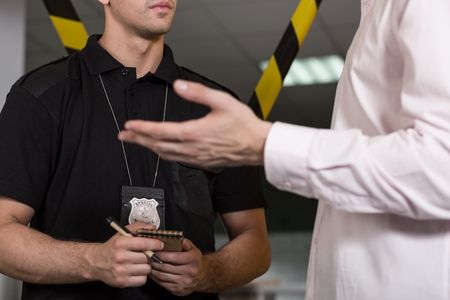
Reasons Police May Want to Question an Innocent Person in Wisconsin
Should you answer questions from the Police? Exercise Caution!
A few questions may seem like a minor thing, but when it’s the police doing the questioning, you need to be careful about how you act and what you say. You may think the conversation is nothing, but there could be ulterior motives at play.
Witness or Suspect
It’s possible that the police are questioning you because they think you can give them a little extra information about something that happened. Maybe they saw you in the vicinity and took a chance on asking if you’d seen anything, or maybe you lived next to someone they are looking for. This is not an unusual procedure; the police just want to talk to potential witnesses to get more information for their case.
However, there is always the possibility that the police have fingered you as the perpetrator of a crime, rather than just a witness. In these cases, it’s not always obvious that the police are after you as they may act very friendly to get you to relax and give them information.
Before you think that you’d never commit a crime and then give away information to someone in a police uniform, remember two things: You may encounter undercover officers, and you might match the description of the suspect, even if you’re not the actual suspect. The wrong attitude and words could get you into a lot of trouble.
What Not to Do
When a police officer asks to speak with you, and you know you haven’t done anything wrong, it can be tempting to spill out everything you know. But there are still reasons why you need to be cautious about answering or saying too much. You don’t want to obstruct an investigation. But if the questioning starts to get very personal or detailed, or you know that you match the suspect’s description even if you aren’t the suspect, tell the police you want to have a lawyer present while you answer questions.
At this point, contact Eisenberg Law Offices to speak with a lawyer and arrange for legal representation to be present when you finally do talk to the police. Investigators do need to check out all leads, but you should not put yourself in jeopardy as a result.







